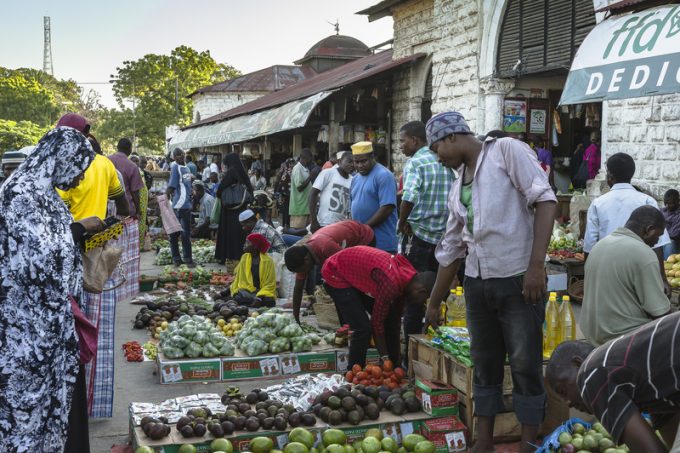AI series: AI – the next, and necessary, stage in the SaaS/cloud-computing revolution
In the first of a series of articles on AI in logistics, we talk to ...
GM: RAISING THE ROOF GGM: IN FULL THROTTLE GZIM: MAERSK BOOST KNIN: READ-ACROSSMAERSK: NOT ENOUGHMAERSK: GUIDANCE UPGRADEZIM: ROLLERCOASTERCAT: HEAVY DUTYMAERSK: CATCHING UP PG: DESTOCKING PATTERNSPG: HEALTH CHECKWTC: THE FALLGXO: DEFENSIVE FWRD: RALLYING ON TAKEOVER TALKODFL: STEADY YIELDVW: NEW MODEL NEEDEDWTC: TAKING PROFIT
GM: RAISING THE ROOF GGM: IN FULL THROTTLE GZIM: MAERSK BOOST KNIN: READ-ACROSSMAERSK: NOT ENOUGHMAERSK: GUIDANCE UPGRADEZIM: ROLLERCOASTERCAT: HEAVY DUTYMAERSK: CATCHING UP PG: DESTOCKING PATTERNSPG: HEALTH CHECKWTC: THE FALLGXO: DEFENSIVE FWRD: RALLYING ON TAKEOVER TALKODFL: STEADY YIELDVW: NEW MODEL NEEDEDWTC: TAKING PROFIT

Major shippers of perishables are expecting widespread adoption of blockchain technology and cryptocurrencies in the next decade.
At the recent TPM conference in Long Beach, Chayenne Wiskerke, chief executive of Wiskerke Onions, the world’s largest shipper of onions, said cryptocurrencies could potentially solve one of the largest problems her company faced.
“At least 40% of my trade is with Africa and the main challenge is a shortage of liquidity in many countries. We have a lot of problems getting payments and, while it’s currently one step too far to use cryptocurrencies, I am pretty sure that within five to six years I will be dealing with digital currencies to facilitate payments.
“And it’s all going to be done via automatic systems. Ordering will be done automatically – probably not wholesale, but certainly retail – and we are already doing our first trials where I can see retail sales which triggers production orders I need to prepare.”
Wiskerke Onions was an early adopter of Maersk’s remote container management system that allows shippers to monitor the condition of perishable goods while they are in transit, and Ms Wiskerke said further automation of supply chain processes would bring huge benefits to the cashflow of all parties.
“Think about shipments,” she said, “the moment the container arrives and the quality of the cargo is satisfactory, then payment should be automatic.”
Thomas Eskesen, previously Maersk Line’s director of reefer trades and now an independent consultant, claimed the potential of cryptocurrencies to speed up payment processes, especially in countries short of liquidity would be “super valuable”.
However, Chris Swartz, director of global transportation and logistics services at giant US meat shipper AJC International, warned that hurdles remained to be overcome before other shippers felt comfortable with the new technology.
“I think there is a lot to be sorted out. Conceptually it makes a lot of sense – we also face a lot of those currency shortage issues in places like Africa, Trinidad and Jamaica – but from a commodity trader’s point of view, we don’t trade in currencies as well because we are taking enough risk in the commodities themselves.
“Before we would move forward with something like cryptocurrencies, we would want to make sure we aren’t trading currencies – It would have to find a stable platform for us to feel comfortable with that.
“We are not going to be doubling down and trading on two different things in one deal, because there is too much risk – we are in the protein business, not the currency business.”
Yet he did acknowledge that cryptocurrencies could strip out substantial costs
“Selling into Africa we have to go through a lot of banks normally based in Europe, and if we could streamline that process that would be great – because they add a lot of cost, and if cryptocurrency removes that, then fantastic.”
Comment on this article